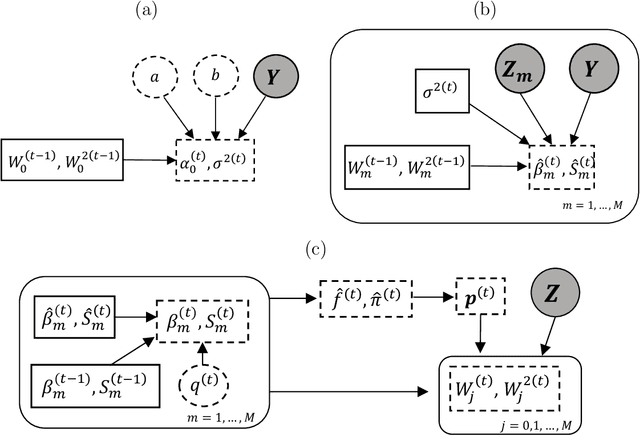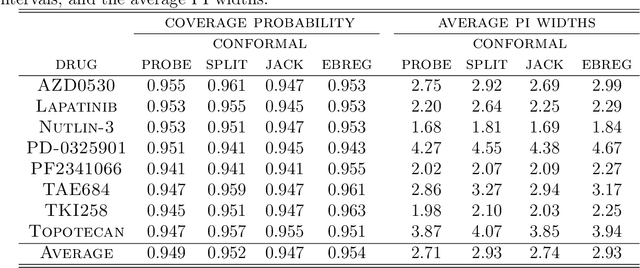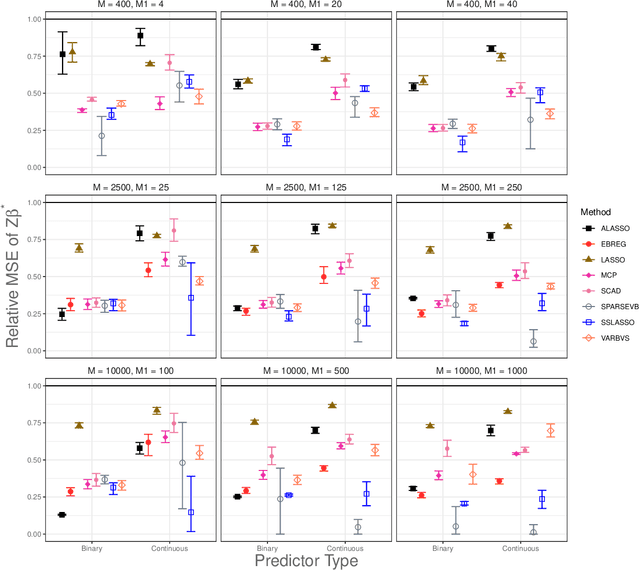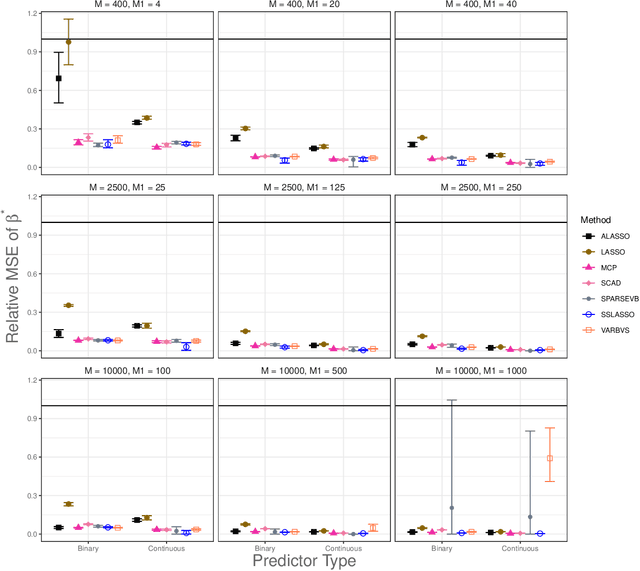Alexander C. McLain
Sparse high-dimensional linear mixed modeling with a partitioned empirical Bayes ECM algorithm
Oct 18, 2023Abstract:High-dimensional longitudinal data is increasingly used in a wide range of scientific studies. However, there are few statistical methods for high-dimensional linear mixed models (LMMs), as most Bayesian variable selection or penalization methods are designed for independent observations. Additionally, the few available software packages for high-dimensional LMMs suffer from scalability issues. This work presents an efficient and accurate Bayesian framework for high-dimensional LMMs. We use empirical Bayes estimators of hyperparameters for increased flexibility and an Expectation-Conditional-Minimization (ECM) algorithm for computationally efficient maximum a posteriori probability (MAP) estimation of parameters. The novelty of the approach lies in its partitioning and parameter expansion as well as its fast and scalable computation. We illustrate Linear Mixed Modeling with PaRtitiOned empirical Bayes ECM (LMM-PROBE) in simulation studies evaluating fixed and random effects estimation along with computation time. A real-world example is provided using data from a study of lupus in children, where we identify genes and clinical factors associated with a new lupus biomarker and predict the biomarker over time.
Sparse high-dimensional linear regression with a partitioned empirical Bayes ECM algorithm
Sep 20, 2022



Abstract:Bayesian variable selection methods are powerful techniques for fitting and inferring on sparse high-dimensional linear regression models. However, many are computationally intensive or require restrictive prior distributions on model parameters. Likelihood based penalization methods are more computationally friendly, but resource intensive refitting techniques are needed for inference. In this paper, we proposed an efficient and powerful Bayesian approach for sparse high-dimensional linear regression. Minimal prior assumptions on the parameters are required through the use of plug-in empirical Bayes estimates of hyperparameters. Efficient maximum a posteriori probability (MAP) estimation is completed through the use of a partitioned and extended expectation conditional maximization (ECM) algorithm. The result is a PaRtitiOned empirical Bayes Ecm (PROBE) algorithm applied to sparse high-dimensional linear regression. We propose methods to estimate credible and prediction intervals for predictions of future values. We compare the empirical properties of predictions and our predictive inference to comparable approaches with numerous simulation studies and an analysis of cancer cell lines drug response study. The proposed approach is implemented in the R package probe.
 Add to Chrome
Add to Chrome Add to Firefox
Add to Firefox Add to Edge
Add to Edge